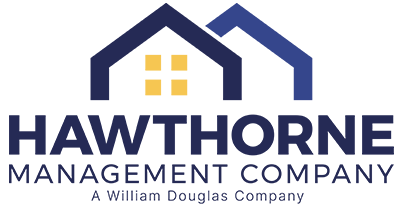When managing your community’s funds, it is important to understand the accounting process used by your management company. This guide will assist in some basic accounting terms as well as outline some concepts used by HOAs and HOA management companies.
Basic Accounting Terminology
- Assets are the positives in a business. This includes, cash in the bank accounts, the checking/operating account, reserve account, and any investments such as certificates of deposit.
- Liabilities are the negatives in a business such as what the company owes. This may include unpaid bills (money that is due to others), prepaid assessments (money that owners have paid that are not yet owed), and other expenses.
- Equity represents the monetary value of a business. It is not a representation of how much cash a business has or how much it is able to spend. This may be displayed on a balance sheet as retained earnings or losses, or as a current year income or loss.
Positive Versus Negative Equity
Positive equity refers to when an HOA has more savings, cash and funds that it may collect than it has money to pay. Negative equity means the association owes more money than it has and can take in. The balance sheet should show positive equity and should balance. If the finances are balanced, this means the assets are equal to the liabilities and equity.
If an HOA has negative equity, the board should consider making changes to the business like increasing the HOA dues or levying a special assessment so the business does not deplete its reserves. The board should never spend more than it is receiving in income. If the liabilities are greater than the assets, consider speaking with your HOA management company property manager to determine what action should be taken.
HOA Budgets
Setting a budget allows an HOA to manage its finances properly. Use this budget as a baseline to determine expenses throughout the year and plan for unexpected costs associated with things like repairs. Your HOA management company can assist you with creating your community budget and allocating funds.
To determine the cost of services under reasonable ideal conditions, you will need a budget. You can calculate your budget through standard costing. This is where a unit cost is multiplied by estimates for the upcoming year to show the total cost of labor and services. Standard costing assists the community managers in the control of costs. Maintaining records throughout the year makes it easier to determine if costs are out of line. Varying community projects or activities as well as reserve studies may cause the budget to differ year to year.
If your community has reserve funds and/or active investment funds, reviewing quarterly reports is a good standard practice. The board will need to monitor fund balance and be sure funds are allocated properly. Pay attention to variances and prepare budgets for the next year well in advance. The proposed budget will need to be approved at minimum 45 days before the start of the fiscal or budget year.
HOA Reserve Studies
Reserve funds act as a community’s backup plan in case of emergency or unexpected costs. To estimate the financial health of a community, a reserve study will calculate the strength of this reserve fund. Whether you are moving into an HOA community or already live in one, it is important to know the financial health of the organization. Reserve studies should be conducted every few years to verify the strength of the common areas. Items like roofs, courtyards, building foundation, elevators, air conditioning, and swimming pools all fall under the responsibility of the HOA. The reserve study should be able to provide an estimate on any future repairs or maintenance.
Reserve funds are used by the HOA to make repairs as needed. The amount the fund should have on hand is predicted in the reserve study. For example, if the air conditioning unit in the community clubhouse has a ten-year lifespan and it is only a year old, you are 100% funded if you have 1/10th of its replacement cost in your reserves. This process will need to be repeated for each individual component such as the swimming pool, roof, or courtyard maintenance. You are 100% funded if you have reached the necessary funding level for each component.
Part of the monthly homeowners’ fees are allocated towards the reserve fund. Ideally, the amount should be as close to 100% as possible. Reserve funds at 70% are decent, however anything under 50% needs to be addressed. If the reserve funds are not able to cover the cost of completion for a project, homeowners will be charged with potentially large assessments. This is the result of a faulty HOA management strategy and will hurt the HOA later if further capital improvements are needed. This could also affect your HOA’s ability to sell homes. If the association has low reserve funds, the Federal Housing Authority (FHA) will not offer loan assistance thus complicating the selling process for current homeowners.
Your HOA management company can assist with setting a healthy balance between monthly homeowner fees and contributing to the reserve fund. They can also help with finding a reputable engineering company to conduct the reserve study for your community.
Fidelity Bonds
Unfortunately, dishonesty and criminal acts do sometimes happen in the HOA community. Fidelity bond coverage protects your association for loss of funds due to results of fraudulent acts from those in charge of handling the community’s finances. These bonds can also be referred to as employee dishonesty bonds or crime coverage.
Fidelity bonds should cover theft or forgery by any employee of the insured. Most HOA management companies and their employees are also covered by the bond. It is recommended that the coverage is at least three times the amount of the monthly assessments plus the amount the association has in reserves. Some associations that collect on a quarterly basis may require more coverage. In addition, some associations have documents outlining the type and amount of coverage required. The FHA and FNMA (Fannie Mae) both require fidelity bonds covering at least three months of the association’s assessments. The FHA also requires the reserve funds to be covered. Your HOA management company or your association’s attorney can assist in determining the coverage requirements and amount.
The more knowledgeable you are about the financial terms and processed associated with an HOA, the easier it will be to address any issues over financial clarity. You HOA management company is readily available to assist in the process and communicate financial matters with your HOA’s board of directors and homeowners.


